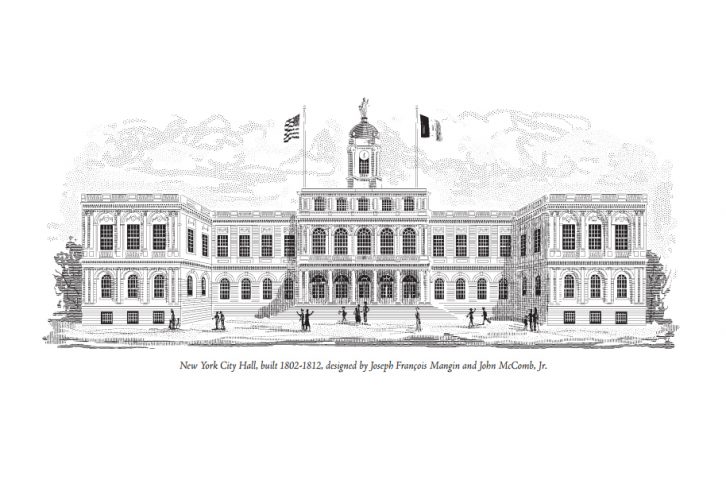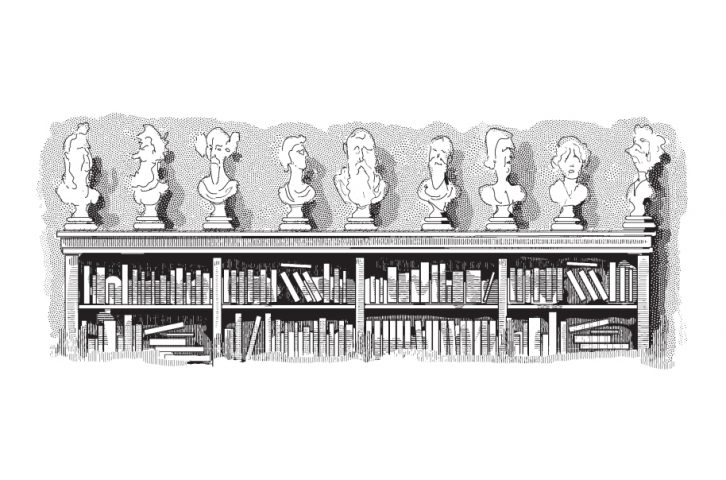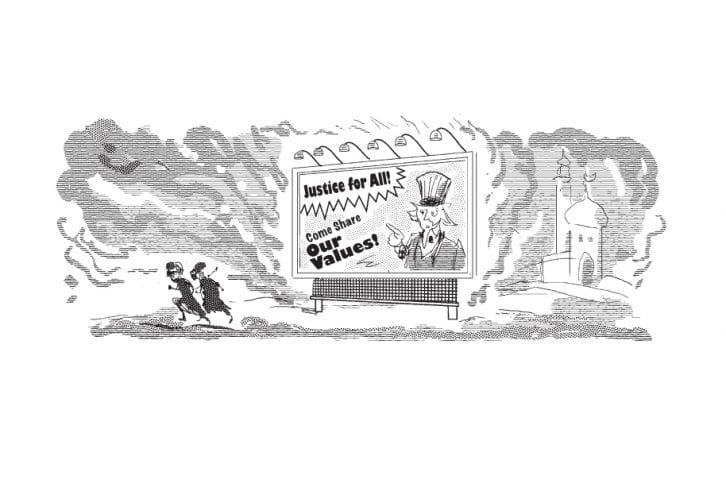Books Reviewed
Joseph Epstein, in his new biography of Tocqueville, wryly asks what the great Frenchman himself would have made of “le phénomène de Tocqueville.” For as Epstein points out, it is impossible nowadays to think “about America, about democracy, about liberty, about bureaucracy, about equality, about almost any aspect of politics, or for that matter about large stretches of human nature” without reference to Tocqueville. Yet there is, in truth, no simple answer to Epstein’s question, because Tocqueville always remained something of a mystery even to himself. On the one hand, he was determined to leave his mark on the world through both his thought and his action. He aspired to greatness and to fidelity to moral and political principles of the first order, including a profound and uncompromising commitment to political liberty. On the other hand, he suffered debilitating doubts about his capacity to make good on his hopes for himself and his country.
Epstein’s little study, part of HarperCollins’s “Eminent Lives” series, along with Hugh Brogan’s massive new biography, Alexis de Tocqueville: A Life, helps us to appreciate the mystery of Tocqueville. Each book has its virtues. Brogan provides a plausible portrait of Tocqueville’s world that includes many telling details; but his book, even though three times the length of Epstein’s, fails to do justice to Tocqueville’s political thought. By contrast, Epstein’s short volume—part biographical sketch, part personal reflection—shows why Tocqueville the thinker remains to this day worthy of our attention, and how Tocqueville’s immense “power of analysis and trenchancy of formulation” continue to move us.
Brogan’s book will have to be reckoned with by all Anglophone students of Tocqueville. It is lively, comprehensive, well-researched, and exceedingly well-written. It is more interesting, if less reliable, than André Jardin’s authoritative 1984 biography of the Frenchman, Alexis de Tocqueville, 1805-1859. Whatever the new book’s defects—and they are considerable—it has the merit of artfully conveying Tocqueville’s world to us. Brogan depicts the royalist or “legitimist” circle that first shaped Tocqueville’s heart and soul; a dignified and loving family tinged with sadness and tragedy; the deep and affecting friendships with Kergorlay, Beaumont, Corcelle, Ampère, and many others that did so much to enrich his life and thought; and the drama of post-revolutionary France, afflicted by the revolutionary virus and unable to find for itself a stable, moderate, legitimate regime.
* * *
Tocqueville’s profound love of liberty and his noble and generous soul become, in Brogan’s telling, almost palpable. We commune with the man and admire a greatness of soul that owes something to the dying world of aristocracy but isn’t simply reducible to aristocratic convention.
This faithfulness to Tocqueville’s world is all the more striking because Brogan himself shares all of today’s egalitarian prejudices. For him, democracy is an unqualified good and anything that challenges it is evidence of aristocratic nostalgia, narrow class interest, or “masculinist ideology.” He fails to take Tocqueville seriously as a political thinker who in some decisive respects transcended his milieu. At the same time, Brogan fails to appreciate the broadest context of Tocqueville’s life and thought, what Tocqueville calls the great “democratic revolution” that was already transforming the Christian European world. His understanding of what might be gained and lost in the transition from the “aristocratic” to the “democratic” dispensation (great “orders of humanity,” rather than regimes in the narrow sense of the term) gives Tocqueville’s work a certain timeless intellectual and spiritual depth.
Both Brogan and Epstein are sensitive to the traumatizing effects of the French Revolution on royalist France, not least on la famille Tocqueville. As Epstein puts it, “the revolution darkened Alexis’ youth…and haunted all his mature years. Why the revolution had happened, what it wrought, and which precisely were its continuing effects on French life—these were to be among the main concerns behind all Tocqueville’s writing.” His mother, Louise Madeleine Le Peletier de Rosanbo de Tocqueville (1771–1836), was the granddaughter of the great Malesherbes, one of the most humane and liberal-minded figures of the final period of the old regime. Malesherbes was guillotined on April 23, 1794, after defending Louis XVI at his trial in the revolutionary Convention. Many perished on both the Tocqueville and Rosanbo sides of the family. Tocqueville’s parents escaped a similar fate only because of the timely overthrow of Robespierre’s Terrorist regime on the ninth of Thermidor (July 27), 1794. Tocqueville’s proud, disinterested love of liberty was a rare quality of a noble soul, but his lifelong disdain for the esprit révolutionnaire, and his desire to extricate democracy from any entanglement with it, were deeply rooted in personal experience.
As Brogan shows, Tocqueville’s father Hervé was a model of the public-spirited aristocrat. A committed “Legitimist,” attached through tradition and sentiment to the Bourbon family, he could not take the oath to the new “Orleanist” King Louis-Philippe who was installed by the “bourgeois” revolution of July 1830. As a result, he effectively retired from political life. But he had the good sense not to encourage Alexis to do so. His son believed that the Bourbon dynasty had forfeited, through political heavy-handedness and no small dose of stupidity, its right to govern France; but rather than immediately taking up a political career in the new regime, he set out for America and began to write the work that would make him famous.
* * *
With the publication of volume one of Democracy in America in 1835, Tocqueville burst onto the stage as a thinker of the first order. He was only 30 years old. The most eminent men of his day compared the book to Aristotle’s Politics and Montesquieu’s Spirit of the Laws. That same year Tocqueville married Mary Motley, a bright, intense (and intermittently sickly) Englishwoman who was nine years his elder. This marriage to a middle-class English Protestant whom he respected and loved was a classic, even scandalous “misalliance.” Their marriage was severely tested by Tocqueville’s occasional infidelities—infidelities that he confessed and regretted—and by an emotional neediness on the part of both partners. For all their emotional ups and downs, however, Alexis and Mary were devoted to each other and remained the central figures in each other’s lives to the end.
Though he could come across as haughty and cold to those who did not know him well, Tocqueville was capable of great devotion, which he extended not only to Mary but also to his inner circle of friends. Pride of place belongs to Gustave de Beaumont, whom he first met as a young lawyer at Versailles in the late 1820s. Epstein rightly states that the intense personal, political, and intellectual partnership between Tocqueville and Beaumont “is perhaps without an analogue in history.” Their friendship was at least as significant as Marx and Engels’s. Tocqueville and Beaumont spoke with each other about everything, co-wrote the impressive Du Système pénitentiaire (the study of prisons that was the official rationale for their trip to North America in the first place), wrote perfectly complementary works on American institutions and mores (Democracy in America and the insufficiently appreciated Marie—Beaumont’s “novel” of race and slavery in America) and coordinated all of their post-1830 political and intellectual activities.
* * *
If Brogan succeeds in recovering Tocqueville’s world, however, he is woefully unsuccessful in capturing his thought. He censures the French political thinker for his deeply suspicious idea of “the tyranny of the majority”—an idea that ostensibly reveals Tocqueville’s insufficient confidence in “government of the people, by the people, and for the people.” Brogan caricatures Tocqueville’s measured analyses of the strengths and weaknesses of democracy as “the anxious degradation of American democracy.” This biographer simply cannot distinguish between the candid friend and the indiscriminate flatterer of democracy, and foolishly insists that all criticisms of democratic majoritarianism are proffered with anti-democratic intent.
Similarly, Brogan cannot fathom that Tocqueville’s equanimity in addressing the two great “anthropological forms” of political experience—democracy and aristocracy—is rooted in a profound thoughtfulness about both human nature and the nature of democracy. As Pierre Manent points out in an insightful article (“Tocqueville, Political Philosopher” in the recently published Cambridge Companion to Tocqueville), “[t]hese questions are currently resolved as follows: Tocqueville was a political man of old noble stock who made a resolute choice for democracy in his head while his heart remained filled with aristocratic ‘nostalgia.'” Manent concedes that some of Tocqueville’s own statements support such an interpretation. But a more serious reading suggests that Tocqueville’s quasi-neutrality (at least on the philosophical plane) between democracy and aristocracy is rooted in a fundamental tension in his own mind.
“On the one hand,” Manent writes, there is
the perspective of justice. From this point of view, the modern, democratic conception of liberty—liberty as equal rights—is undoubtedly the just one. The ancient, aristocratic conception of liberty as privilege has to be given up. This judgment ‘of the head’ was also a judgment ‘of the heart’: Tocqueville, ‘the Norman aristocrat,’ shared the primary emotion of democracy when he spoke of men as ‘obviously similar.’
Hence Tocqueville’s hatred of racism and slavery, his profound admiration for America’s political and constitutional arrangements, and his support for a political order that would bring “the people” into the political process in France. On the other hand, Manent continues, Tocqueville could never forget
the perspective of grandeur, or independence, which he also calls liberty—but this is a liberty different from ‘equal liberty.’ Here the concern is no longer primarily with relations among men but with the quality of each man’s soul, of his ‘tone,’ of his ‘stature’ or ‘grandeur.’ For Tocqueville, as for Aristotle, the perspective of ‘magnanimity’ does not coincide with that of ‘justice,’ and sometimes comes into contradiction with it.
By keeping this tension alive in our souls Tocqueville succeeds in liberating us from democratic dogmatism and broadening our spiritual vision. Brogan understands none of this, alas; but Epstein shows a much fuller appreciation of the philosophical dimensions of Tocqueville’s work. He recognizes that Tocqueville’s endorsement of democracy is “somehow less than ebullient,” but he knows that it is nonetheless wise and sincere.
The differences between Epstein’s and Brogan’s books become even more apparent when one compares their respective treatments of Tocqueville’s Recollections. This posthumously published work is his account of the revolution of 1848—the first broadly “socialist” revolution in Europe—and of his political activity in the period between the February 1848 revolution and Louis Napoleon’s coup d’état of December 2, 1851. Since 1830, Tocqueville and Beaumont had identified, uneasily, with a left opposition that advocated far-reaching social reforms as well as deliberate efforts to include more Frenchmen in the country’s political life. But after February 1848, Tocqueville stood with “the party of order” against those radical and socialist elements that challenged civilization’s very foundations, not least the right to property. Although Epstein sees in this stance a reasoned commitment to freedom, reform, and the rule of law, Brogan discerns only blind loyalty to class interests, “neurotic” fear of revolution, and “commitment to an obsolescent economic theory.”
In his “Speech on the Right to Work” of September 12, 1848, Tocqueville argued that full-fledged socialism was nothing less than a new “road to servitude” because it makes the state “the sole owner of property,” unleashes man’s crudest material passions, and shows “a deep distrust of liberty, of human reason, a profound scorn for the individual in his own right.” Epstein rightly discerns in Tocqueville’s principled opposition to socialism the decency and good sense of a conservative-minded liberal. Though admitting that the Recollections is a “literary masterpiece,” Brogan sees behind it a fearful, insensitive, and selfish defender of an antiquated class.
Tocqueville despised the stultifying mediocrity of political life in France between 1830 and 1848. A political class led by the likes of François Guizot and Adolph Thiers—unimaginative and insensitive to new dangers on the horizon—did not stir his soul. Tocqueville’s struggle after February 1848 to defend a lawful republic against both the radical Left and the Bonapartist Right fired him with a renewed sense of purpose. It was at this point that he found his political faith of “liberty under God and the law”—a faith to which he gave eloquent expression in his 1856 masterpiece, The Old Regime and the Revolution.
* * *
Brogan and Epstein recognize the mixture of magnanimity and anxiety that moved Tocqueville. He was always haunted by doubt, which he described in 1831 as one of the three great “miseries” afflicting the human race (the others being death and illness). He lost his faith at the age of 16, though he remained a broadly theistic thinker who repeatedly expressed confidence in the existence and providence of God. In the political realm, he was more or less content with what he called “probabilistic” truths. For example, one could not so much disprove various forms of historical and racial determinism as show their lack of plausibility—and their deeply pernicious effects on liberty and the human soul.
But in philosophy and theology, Tocqueville wanted to affirm something on the order of indubitable truth. He confessed and received communion before his death—partly to please his wife Mary (a fervent convert to Catholicism), but also because he undoubtedly yearned to return to full communion with the Church of his youth. He was, in any case, only obliged to confess his sins and not to affirm his belief in all the dogmas of the Church. His ultimate religious convictions will always remain mysterious. The evidence suggests that he died with some of his doubts intact, but with a renewed desire to find solace in the faith’s great metaphysical and spiritual truths. Unusually confident in his principles and personal integrity, Tocqueville was yet never quite at home with himself or the world. One needs the help of both Aristotle’s Nicomachean Ethics and Pascal’s Pensées to account for his distinctive—and paradoxical—”greatness of soul.”





